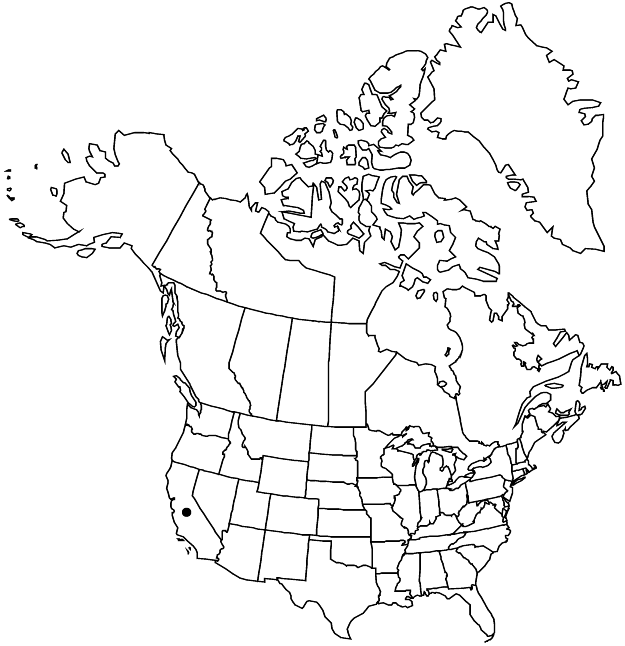Chorizanthe pungens
Trans. Linn. Soc. London 17: 419, plate 19, fig. 2. 1836.
Plants prostrate to ascending or erect, 0.5–2(–2.5) × 0.5–10 dm, grayish-villous. Leaves basal; petiole (0.5–)1–3(–4) cm; blade oblanceolate, (0.5–)1–5(–7) × (0.3–)0.4–0.7(–1) cm, villous. Inflorescences rather dense with secondary branches suppressed, grayish; bracts 2, similar to leaf blades at proximal nodes only reduced, short-petiolate, becoming linear and aciculate at distal nodes, acerose, 0.5–7 cm × 2–7 mm, awns 0.5–1.2 mm. Involucres 1, grayish, cylindric, often ventricose basally, 2–2.5(–3) mm, with distinct, white to pink or purple, scarious margins extending nearly full length of awn, corrugate, villous abaxially; teeth spreading, equal, 0.5–1.5 mm; awns uncinate with longer ones 2–3 mm and alternating with shorter (1–1.5 mm) ones. Flowers exserted; perianth bicolored with floral tube white and tepals white to rose, cylindric, 2–3.5 mm, pubescent abaxially; tepals connate less than 1/4 their length, monomorphic, obovate to oblong, acute to truncate and erose apically; stamens 9, slightly exserted; filaments distinct, 2–3 mm, glabrous; anthers cream to rose, ovate, 0.3–0.4 mm. Achenes dark brown, globose-lenticular, 2–2.5 mm.
Discussion
Varieties 2 (2 in the flora).
Selected References
None.
Key
| 1 | Margins of involucres white (rarely pinkish), scarious; plants prostrate to slightly ascending; coastal areas and adjacent inland valleys | Chorizanthe pungens var. pungens |
| 1 | Margins of involucres dark pinkish to purple, scarious; plants slightly ascending to erect; coastal mountains | Chorizanthe pungens var. hartwegiana |
